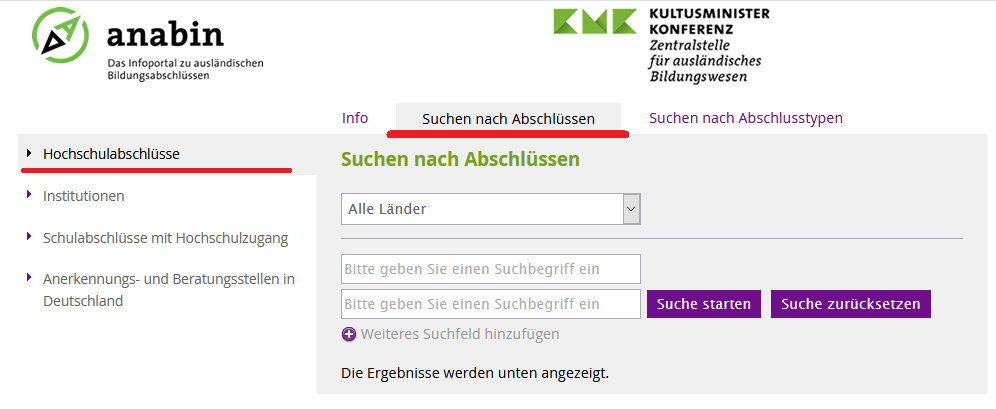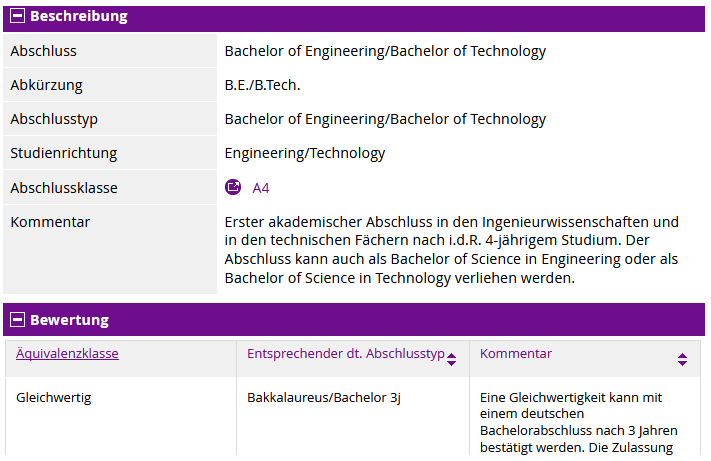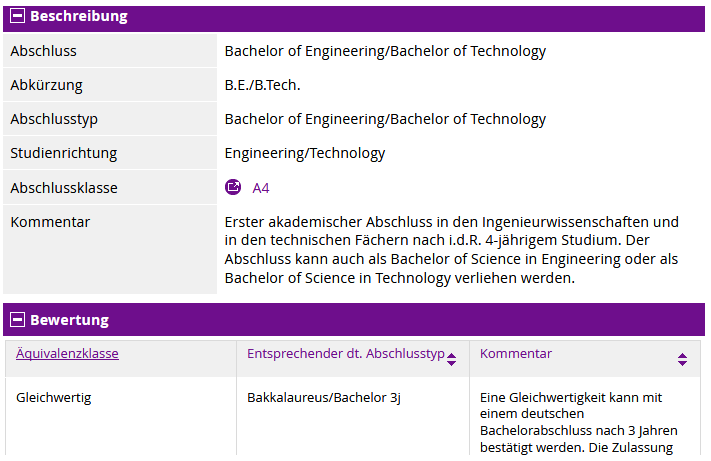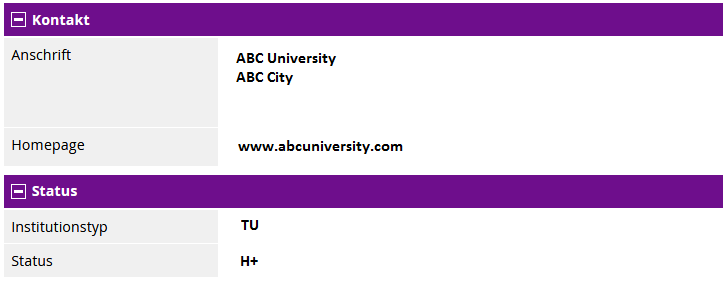How to check if a foreign degree or University is recognized in Germany?
Where to look?
“anabin” database can be used to find out how your foreign certificate or degree will be evaluated in Germany. You can also use this database to find out if your university is recognized in Germany. The database is managed by German government’s Kultusministerkonferenz – Zentralstelle für ausländisches Bildungswesen.
Note that the anabin database is not exhaustive. Therefore, it can be that your certificate/degree/institution is not yet listed by anabin. This doesn’t mean that your certificate/degree will not be honored or your institute will not be recognized. It just means that no decision has been made yet. Also, foreign degrees in Germany can only be recognized if are obtained from a public or a state-recognized institution.

SEE ALSO: How to apply at a university in Germany?
To find out how your foreign university degree is evaluated in Germany:
- Go to https://anabin.kmk.org/anabin.html
- Select the category “Hochschulabschlüsse” on the left
- Search for your university degree via the search mask in the “Suchen” tab. The quickest way to do this is to select the country and enter part of the final name into the text field. Note that languages with non-Latin letters such as Russian, Arabic or Greek are shown transliterated in the database.
- When you have found your degree, open the record and click “Bewertung” (A small plus sign on the left side of the table).
- If your degree is not listed in anabin, you can alternatively search your graduation type and see if the rating is listed here.

SEE ALSO: Is Studying in Germany hard?
The database provides the description of the foreign certificate/degree and its valuation. The details include the exact degree, the translation into German or English, the abbreviation, the duration of the study, a general description of the studies and the requirements that apply in the home country for the study. Make sure your degree complies with all these points. The information under “Bewertung” (on clicking the plus sign) provides information on how the relevant degree can be classified in the German education system (äquivalenzklasse). The following classifications are used:
- bedingt vergleichbar (conditionally comparable): It means on a formal level there are differences to the corresponding German educational qualification. For example, this is in the case of degrees, which were completed at the university level in the state of origin, but offered in Germany only at vocational schools.
- Entspricht (corresponds to): It means that there are no significant differences compared to the German qualification
- Gleichwertig (equivalent to): The foreign degree is formally equivalent to a German degree.

SEE ALSO: 11 reasons why you should study in Germany?
To determine the status of your university, proceed as follows:

- Go to https://anabin.kmk.org/anabin.html
- Click on “Institutionen” on the left side of the menu
- Search the institution from which you obtained your university degree via the search mask in the “Suchen” tab.
The quickest way to do this is to select the country and enter part of the university name in the text field. Note that languages with non-Latin letters such as Russian, Arabic or Greek are shown transliterated in the database. - Once you have found your college, open the record and click on “Status” (For more details click on the small plus sign on the left side of the table).

SEE ALSO: 7 Myths about Studying in Germany
The institutes can have the following type of status:
- H+: It means that the institution concerned is recognized as a university in its home country. It is also regarded as a higher education institution in Germany.
- H-: It means that the recognition/accreditation in the state of origin is missing. And/or that it can not be classified as a university in Germany.
- H+/-: It denotes institutions for which no clear statement can be made. For example, this is the case if certain programs offered by an institution belong to the higher education sector. While others are lower or not accredited according to the duration and/or level.

SEE ALSO: 7 Reasons why living in Germany is awesome
Please subscribe to our blog to be informed about the updates.
Download our Android app from the Google Play store to get all the information about, living, studying and working in Germany all in one place.
More from Study in Germany
FAQs about Studying in Germany | Airports | Preparation and Arrival | Masters | Bachelors | PhD | Student in Germany | Life in Germany | Part-time Jobs | Working in Germany | Driving in Germany | Housing in Germany | Integration | Comparisons between Countries | Traveling in Europe
Leave a Comment

